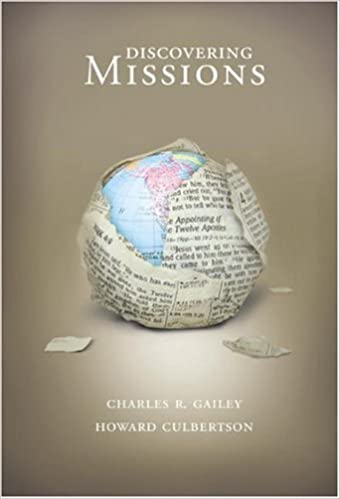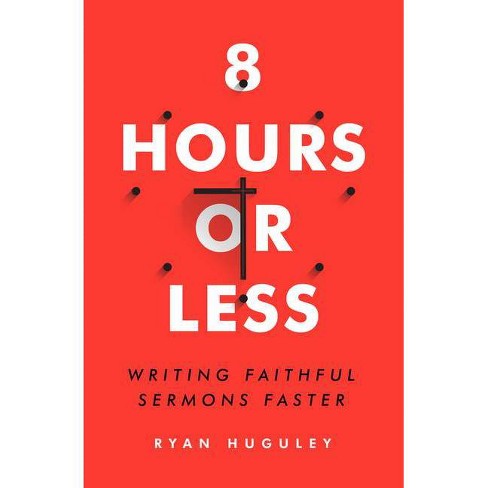
Discovering Missions
By Charles R. Gailey & Howard Culbertson
– Do we claim to believe in God? He’s a missionary God. You tell me you’re committed to Christ? He’s a missionary Christ. Are you filled with the Holy Spirit? He’s a missionary Spirit. Do you belong to the church? It’s a missionary society. And do you hope to go to heaven when you die? It’s a heaven into which the fruits of world missions have been and will be gathered. – John R. Stott
– The church exists by missions as a fire exists by burning. – Emil Brunner
– To continue with the seedbed metaphor, missions is more than a few plants – even robust ones – scattered among other good things in Scripture. Missions is the soil of Scripture in which everything else is rooted. The inescapable conclusion is that if Christians are going to call themselves “people of the Book,” they must be gripped by that Book’s passion for global mission. — Discovering Missions by Charles R. Gaily & Howard Culbertson pg. 13
– I believe that in each generation God has called enough men and women to evangelize all the yet unreached peoples of the earth… everywhere I go, I constantly meet with men and women who say to me, “When I was young, I wanted to be a missionary, but I got married instead” or “My parents dissuaded me” or some such thing. No, it is not God who does not call. It is persons who will not respond. – Isabell Kuhn, missionary to the Lisu of Thailand and China
– The Bible is not the basis of missions; missions is the basis of the Bible. – Ralph Winter
– If you take missions out of the Bible, there’s little left but the covers. – Nina Gunter 1
– To most of us the number of “a hundred and fifty-three,” which was the number of fish caught in the net along the shores of Galilee after the resurrection (John 21:4-14), seems incredibly trifling. We might be inclined to wonder why the writer had any interest in giving the number. When, however, we realize that in ancient times the number 153 was given as the total number of all the tribes and nations of the earth, it is no wonder that the earthly church interpreted this passage as the assurance of success in fulfilling the Great Commission to bear the Good News to all men everywhere. – Eugene Nida, linguist and Bible translator.
– I never made a sacrifice. We are not to talk of “sacrifice” when we remember the great sacrifice that He made, who left His Father’s throne on high to give Himself for us. – David Livingstone
– William Carey, trying to persuade his colleagues about the need for world evangelism, said, “See what the Moravians have done! Can we not follow their example, and in obedience to our heavenly Master, go out into the world and preach the Gospel to the heathen?” — Discovering Missions by Charles R. Gaily & Howard Culbertson pg. 47
– One of the British missionaries following William Carry’s example was Robert Morrison, who in 1807 went to China as the country’s first Protestant missionary. When an owner of the ship on which Morrison was traveling found out why Morrison was going to China, he asked, “Now, Mr. Morrison, do you really expect that you will make an impression on the idolatry of the Chinese Empire?” “No, sir,” replied Morrison, “but I expect God will.” — Discovering Missions by Charles R. Gaily & Howard Culbertson pg. 48
– Stories of African-American missionaries do not get told very often. Adoniram and Ann Judson, who went to India in 1812, are often credited with being the first American Protestant missionaries. In reality, the title of “First Protestant missionary from the New World” may belong to John Marrant, a “free black” from New York City who in 1770 began preaching to Native Americans in Canada. Marrant went on to take the gospel to four tribal groups: Cherokee, Creek, Catawar, and Housaw. Or, if the title of “first American missionary” needs to be reserved for someone who actually boarded a ship, then it might be claimed by George Liele, a freed slave who went to Jamaica in 1783 to start a Baptist church. In 1790, former slave Prince Williams went from the U.S. to the Bahamas to plant Baptist churches. That work has borne so much long-term fruit that today the Baptist are the largest denominational group in the Bahamas. All three of these —Liele, Marrant, and Williams – were planting churches cross-culturally before the Judsons ever left New England. — Discovering Missions by Charles R. Gaily & Howard Culbertson pg. 82
– Culture is what makes people think of us as us and them as them. – Bob Sjogren
– Samuel Zwemer, missionary to the Muslim world, spoke approvingly of missionaries who had so “wedded their hearts” to the places where they served that when they returned to their countries of origin, they felt homesick for the mission field they served in. That feeling, said Zwemer, was inverted homesickness. — Discovering Missions by Charles R. Gaily & Howard Culbertson pg. 102
– There’s nothing I would not do, there’s no place I would not go for the sake of Christ. – Esther Winans
– Let my heart get broken with the things that break God‘s heart. – Bob Pierce
– If the Great Commission is true, our plans are not too big; they are too small. – Pat Morley
– People who feel they are already committed to enough things around a church will tune out appeals to become burdened for world evangelism. Congregations full of this kind of people will likely not be zealous for world evangelism until believers shed the notion that the church is a salad bar of activities and emphases in which involvement in global mission outreach is just one more option like singing in the Christmas musical or helping with a weekly children’s ministry. — Discovering Missions by Charles R. Gaily & Howard Culbertson
– The church must send or the church will end. – Mendell Taylor, church historian – God cannot lead you on the basis of facts that you do not know. – Ralph winter
– Promote world evangelism in the following four ways:
- By educating people about what is happening in missions, about God‘s heart for all peoples, and about the task yet to be done.
- By mobilizing prayer support for world evangelization.
- By challenging children, youth, and adults to learn about and embrace the global mission of the church to the point of offering themselves for missionary service.
- By raising funds for the world mission enterprise.
— Discovering Missions by Charles R. Gaily & Howard Culbertson pg. 180
– The real problem of foreign missions, then, is the home churches, and without the pastor it cannot be solved…. The multitudes of the distant nations cannot come to speak for themselves, even were they’re conscious of their needs. Nor can the missionary do so. The missionary visitor may arouse temporary interest. But it is the missionary pastor who makes church a missionary power the year through. – John R. Mott — Discovering Missions by Charles R. Gaily & Howard Culbertson pg. 187
– Because the essence of the gospel – the Good News – is such that it must be shared with all people everywhere, missions cannot be left to a few missionary-minded people. Because global missions is on the heart of the triune God, it must be on the heart of the local church. — Discovering Missions by Charles R. Gaily & Howard Culbertson pg. 191






